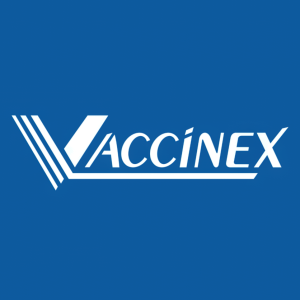Vaccinex Announces Pricing of $3.7 Million PIPE Financing
ROCHESTER, N.Y., Feb. 07, 2024 (GLOBE NEWSWIRE) -- Vaccinex, Inc. (Nasdaq: VCNX) (“Vaccinex” or the “Company”), a clinical-stage biotechnology company pioneering a differentiated approach to treating neurodegenerative disease by blocking astrogliosis and neuroinflammation through the inhibition of SEMA4D, today announced it has priced a
The closing of the offering is expected to occur on or before February 8, 2024, subject to the satisfaction of customary closing conditions. The gross proceeds from the offering are expected to be
In connection with the private placement, the Company is also entering into a registration rights agreement with certain of the private placement investors. Pursuant to the registration rights agreement, Vaccinex will agree to, among other things, file with the Securities and Exchange Commission a registration statement covering the resale of the shares covered by the registration rights agreement. This press release shall not constitute an offer to sell or the solicitation of an offer to buy these securities, nor shall there be any sale of these securities in any state or other jurisdiction in which such offer, solicitation, or sale would be unlawful prior to the registration or qualification under the securities laws of any such state or other jurisdiction.
About Pepinemab and Alzheimer’s Disease
Vaccinex, Inc. is pioneering a differentiated approach to treating neurodegenerative diseases and cancer through the inhibition of semaphorin 4D (SEMA4D). The Company’s lead drug candidate, pepinemab, a SEMA4D blocking antibody, inhibits damaging inflammation and loss of homeostatic functions in brain of patients with neurodegenerative diseases and promotes effective tumor immunity in multiple cancers. Pepinemab is being studied as a monotherapy in the SIGNAL-AD Phase 1/2a clinical trial in Alzheimer’s Disease (“AD”), with ongoing exploration of potential Phase 3 development in Huntington’s disease (“HD”). Vaccinex has previously reported results of a phase 2 trial in HD (Nature Medicine 28:2183-2193 (2022)) that indicated pepinemab treatment prevents decline in glucose uptake associated with astrocyte activation and significantly slows cognitive decline as measured by the HD Cognitive Assessment Battery (HD-CAB).
Astrocytes are key regulatory cells in the brain that, under conditions of injury or disease, switch from their normal supportive physiological functions to inflammatory activity that is believed to aggravate damage to brain tissue. This transition is marked by release of glial fibrillary acidic protein (“GFAP”), a characteristic astrocyte product, into blood. GFAP level in blood has been found to correlate with Aβ amyloid deposits in brain and to be associated with higher risk of incident dementia and faster rates of cognitive decline in AD. A committee convened by the Alzheimer’s Association has recently recommended GFAP as a leading blood-based biomarker of astrocyte activation and brain inflammation in AD. Vaccinex recently reported that pepinemab treatment significantly reduces GFAP levels in blood of patients with HD. Given the many physiological parallels between neurodegenerative processes in HD and AD, we believe that similar biological effects of pepinemab treatment are likely in the two indications.
Early evidence of limited benefit to AD patients treated with antibodies to Aβ amyloid has stimulated a search for differentiated treatments, such as targeting neuroinflammation, that could further improve responses. It has been known for some time that beta amyloid deposits can also be present in the brain of elderly subjects who do not progress to Alzheimer’s. As noted by Howard Fillit, MD, Chief Science Officer for the Alzheimer’s Drug Discovery Foundation, “If there’s no strong immune reaction to the buildup [of amyloid deposits], there’s no inflammation and no progression of disease.” We believe that the ability to prevent astrocyte activation and reduce brain inflammation makes pepinemab an attractive alternative or complement to anti-Aβ antibodies with potential for greater efficacy. SIGNAL-AD is supported in part by funding from the Alzheimer’s Association and the Alzheimer’s Drug Discovery Foundation.
Forward Looking Statements
To the extent that statements contained in this press release are not descriptions of historical facts regarding Vaccinex, Inc. (“Vaccinex,” “we,” “us,” or “our”), they may be forward-looking statements reflecting management’s current beliefs and expectations. Such statements include, but are not limited to, statements about our plans, expectations and objectives with respect to our clinical trials of pepinemab in various indications and the use and potential benefits of pepinemab in AD and HD and other indications, Vaccinex’s ability to finance its current development plans with pre-existing cash balance and funds from the offering, and other statements identified by words such as “may,” “will,” “appears,” “expect,” “planned,” “anticipate,” “estimate,” “intend,” “hypothesis,” “potential,” “suggest”, “advance,” “subject to” and similar expressions or their negatives (as well as other words and expressions referencing future events, conditions, or circumstances). Forward-looking statements involve substantial risks and uncertainties that could cause the outcome of our research and pre-clinical and clinical development programs, future results, performance, or achievements to differ significantly from those expressed or implied by the forward-looking statements. Such risks and uncertainties include, among others, our ability to continue as a going concern, our ability to maintain the listing of our common stock on Nasdaq, the risk the offering does not close, the impact of inflation on our expenses and business, uncertainties inherent in the execution, cost, enrollment and completion of clinical trials, uncertainties related to regulatory approval, risks related to our dependence on our lead product candidate pepinemab, and other matters that could affect our development plans or the commercial potential of our product candidates. Except as required by law, we assume no obligation to update these forward-looking statements. For a further discussion of these and other factors that could cause future results to differ materially from any forward-looking statement, see the section titled “Risk Factors” in our periodic reports filed with the Securities and Exchange Commission (the “SEC”) and the other risks and uncertainties described in Vaccinex’s most recent year-end Annual Report on Form 10-K and subsequent SEC filings.
Investor Contact
Elizabeth Evans, PhD
Chief Operating Officer, Vaccinex, Inc.
(585) 766-2033
eevans@vaccinex.com








